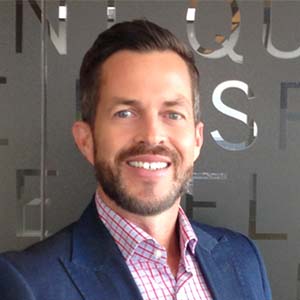We asked industry experts what they would say are the biggest challenges the spa sector is currently facing. Here is what they said.
 Daniel Poulin, Corporate Spa & Fitness Manager, North & Central America, AccorHotels
Daniel Poulin, Corporate Spa & Fitness Manager, North & Central America, AccorHotels
One of my biggest challenges is staying on top of the newest trends. When you work for a large corporation it takes some time to get something going. You come up with something that is innovative today, but it can take a year or more before it gets rolled out, and sometimes you miss the boat because others got to it before you.
I find this very challenging, trying to anticipate the next biggest trend, because you want to be ahead of the curve, ahead of the game. But every time I see something cool that I want to add, I have to ask myself if I can do it in time. It’s easier for those working on a smaller scale, who don’t have as many spas.
Another great challenge is keeping talent, especially when it comes to therapists. We have a lot of beautiful resort hotels that are located in remote areas, and we have a very difficult time recruiting therapists and keeping them.
If it’s very isolated, people may want to go there right after massage school and spend a year or two paying off student loans and having a good time, but then two years later, they’re gone. You spend all this time training them and you’re back to square one, and it’s constant.
We have a permanent posting on the website career page for massage therapists for those resorts. It never comes down because there’s never a time when we’re not going to need them. Even if we’re fully staffed for a month, we know that there will be five people leaving the following month.
Last summer, I and my spa director traveled around Ontario, Canada, visiting eight massage therapy schools, and we got the feeling that massage therapists don’t see a spa as their best option. They think that they’re going to make a lot more money being independent. The think, “Why would I work for 50 dollars a massage when I could be charging 100 dollars working out of my house?”
We were trying to make them understand that this might seem more financially interesting, but you forget that working for a large company, you have benefits, a pension plan, and paid vacations. You don’t have to find your own clients, or buy your own linen – you don’t have any overhead, so at the end of the day, that 50 dollars becomes a lot more than what you could charge in your basement.
And, OK, if you have student loans to pay, staff accommodations are really, really cheap in remote locations. Go there for a couple of years, get some experience in the luxury environment, pay some of your debts, make some friends, and then decide if the spa business is not for you. If not, you can move on. If it’s for you, then you can go up and up, all the way to becoming a spa director one day. There’s potential to grow. At least we get you for those couple of years. It’s better than not at all.
I think we could find better ways to communicate with students and make them understand that spas are a great employment opportunity.
Read Expert Insight Part II, with Jeff Matthews, Managing Director, Spa Foundations




So well said. Finding and keeping therapists seems to be a global problem!
It would be great if there was a way we could do a short-term “trade and educate” therapists and rotate the ones that would like to see the world, learn different skills, or just broaden their perspectives amongst each other. Just a fleeting though! 🙂
The spa industry is very myopic when it comes to their therapists.
One of the reasons that spas have a tough time recruiting and retaining therapists is because the training is very one sided. It focuses solely on updating treatments or product knowledge. According to Fortune Magazine’s 2015 report “3 Things Millennials Want in a Career” training is at the top of their list. Millennials want to invest time acquiring the skills and knowledge they need to grow both professionally AND personally . When you help them to do that they will not leave your organization. Why would they?
I teach therapists how to engage more effectively with their guests. Because the majority of spa professionals are introverts this helps them to interact with their guests, and each other more meaningfully. The bonus is a dramatic increase in retail selling and customer retention which translates to more earnings. Everyone wins.